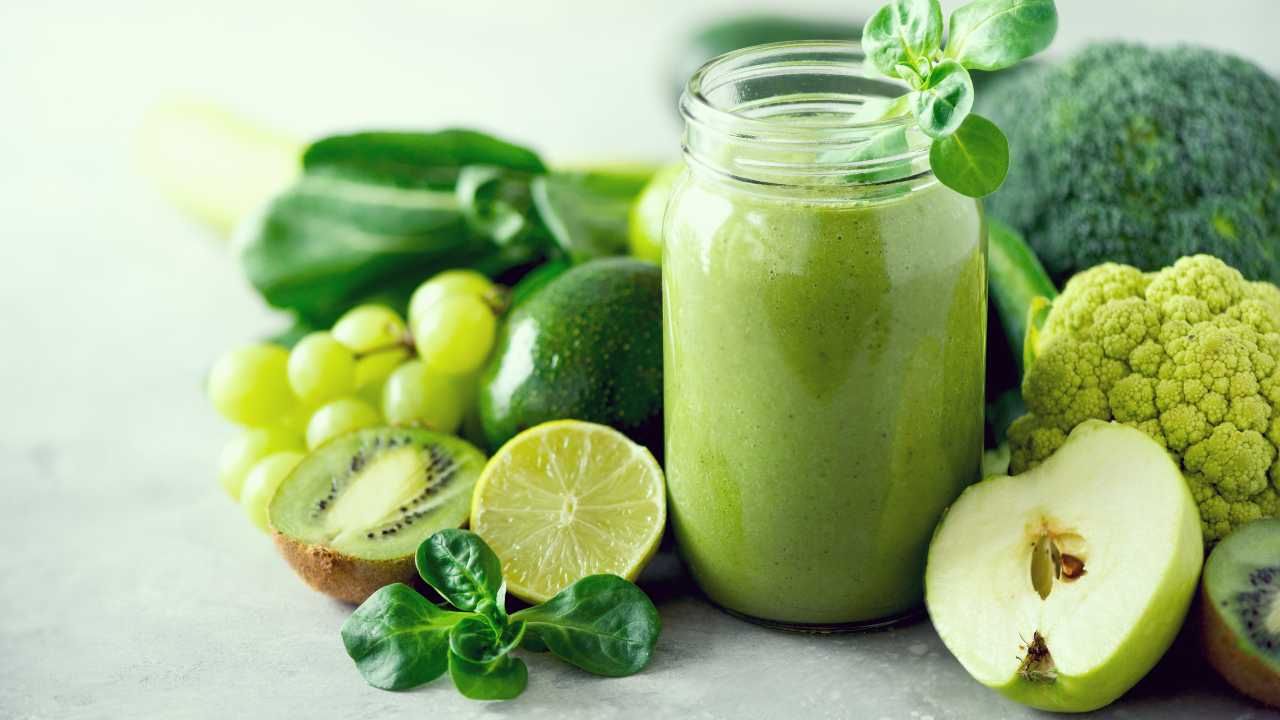The Future of Food: Trends and Insights from the Plant-Based World Expo 2023
Nov 21, 2023
Introduction
In this blog post, we'll be diving into the remarkable insights and opportunities, trends, transformative ideas, and game-changing products presented at the Plant-Based World Expo 2023.
Let’s discover the future of the industry and uncover exciting possibilities that will revolutionise plant-based offerings.
Observations

What a fantastic day it was! Plant-Based World Expo 2023 fulfilled its promises with endless stands from all around the world. It was a pleasure to witness so many passionate people showcasing their brands and products.
There is still a predominant focus on meat and dairy alternatives, with a continuous effort to match the exact colour, texture, and taste of their animal-based counterparts.
However, after five years of trying plant-based food and consuming it myself, I have noticed a shift towards not only mimicking the texture and mouthfeel of animal products, especially meat alternatives, but also a greater emphasis on taste and overcoming any lingering off-flavours associated with plant-based protein.
The hard work that goes into creating these plant-based products is truly admirable.
It is important to acknowledge that there will always be a distinct flavour difference between animal products and their plant-based alternatives. As Dr Roberta Re mentioned, “We, as humans, are creatures of habits. We like what we know. That’s why we have to take consumers with us if we ask them to do a big leap”.
Flavours and emotions are closely intertwined because the olfactory system is connected to the limbic system, which governs emotions, instincts, and intuitions. This connection explains why we can sometimes detect unidentified aroma compounds in food and beverages that evoke powerful memories or feelings, positive or negative.
The brain's primary goal is to ensure our survival. Therefore, when we taste something, our initial response is rooted in the fight or flight mechanism. The brain quickly processes and compares sensory information to past experiences stored in our memory to determine if the food is beneficial or harmful to us.
That's why when we taste plant-based meat or dairy alternatives designed to imitate their animal-based counterparts, our brains rapidly perceive the "unknown" taste as something that shouldn't be present. This makes it challenging for us to accept the difference in flavours.
The taste and flavours of a product are the main priority for customers when making a purchase, even though factors like texture, appearance, packaging, and cost are essential and challenging to perfect. It ultimately comes down to training our brains to embrace and accept the differences in flavours, making plant-based products our new standard and norm.
If you're a plant-based product developer, we understand how challenging it can be to identify flavour characteristics from animal products and successfully incorporate them into plant-based alternatives. To further explore the fascinating connection between the brain and aroma compounds, as well as enhancing your palate skills to create superior plant-based products, we invite you to delve into our insightful blog post.
The future of plant-based products
Technologies
The future of product packaging is exciting! Brands like Morro, focusing on sustainability, have developed biodegradable edible or not-edible films to replace plastic. One of their technology, microencapsulation, offers numerous benefits such as enhancing flavour masking for challenging ingredients and extending product shelf-life.
Additionally, microcapsules with enteric release functionality are perfect for fat-soluble nutrients like Vitamin D. This ensures their stability in food and beverage products while also promoting efficient nutrient bioavailability in the upper gut, reducing the need for nutrient overages.
Cultured meat and dairy are existing technologies that can further expand in the future. Companies like Formo, use precision fermentation to create animal-free cheeses made from proteins found in animal milk, such as casein, but produced using microorganisms.
Cultured meat, also known as lab-grown meat, is produced by culturing animal cells in a laboratory. Lab-grown meat is made from the same cells as traditional meat but does not require the slaughter of animals, which is a more ethical option for consumers.
However, we will have to wait a little longer for lab-grown meat in the UK as it has not yet been approved. It needs to undergo health and safety checks, establish a proper definition, consider classification as meat or not, and adhere to tax regulations.
The Plant-Based trends and opportunity in the UK
Health and sustainability are increasingly important concerns for UK consumers, as confirmed by the Department for Business & Trade. This presents a great opportunity for future plant-based products.
The definition of "healthy" is expanding to include overall wellness, good mood, and mental health. The demand for healthier lifestyles is driving the growth of the food and drink sector, with a particular focus on mental well-being and overall wellness.
This growing emphasis on health and wellness offers companies the chance to develop and offer healthy and functional food and drink products in the UK market.
While most plant-based consumers are flexitarians who aim to reduce their consumption of animal products, there is a new emerging trend: climaterians.
Climaterian diets, which prioritise sustainability and health, are becoming increasingly intertwined. Along with nutrition labels, there is now widespread discussion about environmental scores, and some food services are offering "climaterian" menu options that highlight the carbon footprint of dishes, helping consumers make choices that are best for themselves and the planet.
As Dr. Roberta Re mentioned, "successful products are usually linked to multiple trends." This is why there is a significant opportunity for plant-based brands to capitalise on health and sustainability trends, particularly with the support of investment opportunities from the Department for Business & Trade.
Plant-based products 2.0
Since the rise in popularity of plant-based diets, numerous brands have inundated the market with similar meat and dairy products.
However, these plant-based options primarily focus on replicating the texture and flavour of animal proteins, largely neglecting the importance of nutrition. As a result, consumers have come to realise that these products are not always healthier alternatives to their animal-based counterparts.
A new trend is emerging in the plant-based food industry, as more consumers seek healthier options and a better understanding of product ingredients. This trend involves a shift towards simpler and more nutritious plant-based options.
Leading brands like Simplicity Food, Better Nature tempeh, and Biffs are prioritising the use of real fruits and vegetables and fermented vegetables and pulses to enhance the nutritional value of their products.
As more plant-based products focus on protein, new brands aim to go beyond protein and include other aspects of a healthy diet. That's why it's important to understand the preferences of the target audience, including taste, health, and sustainability.
According to Neil Rankin, founder of Symplicity Foods, it's crucial to recognize that cultural norms may not align with a plant-based diet. Therefore, concerted efforts are needed to encourage a shift towards more vegetable-based meals.
It will take more innovative small businesses to promote this change by providing convenient, nutritious, and delicious plant-based options, encouraging consumers to consider the question, "Is it good for me?".
There is a need to rebuild the reputation of plant-based products, which has been tarnished by the perception of being fake, overly processed, and lacking in nutritional value.
By bringing new life and fresh perspectives to the market, these brands can encourage a positive shift in the way we eat.
Conclusion
The future of plant-based products in the UK presents a great opportunity for companies to capitalise on the growing demand for health, nutrition and sustainability.
With a focus on overall wellness and mental health, there is a need for healthier and functional food and drink options. Additionally, the emergence of climaterian diets emphasises the importance of sustainability in food choices.
It is crucial for plant-based brands to prioritise nutritional value and simplicity in their products, going beyond replicating animal proteins. By providing convenient, nutritious, and delicious options, these brands can contribute to a positive shift in the way we eat and rebuild the reputation of plant-based products.
It is a collective effort that encourages consumers to consider the impact on our health and the planet.
Link to related blogs you may enjoy
🔶Demystifying Flavour Masking: Techniques for Balancing and Covering Unpleasant Tastes & Flavours
🔶 How to Use Our Senses to Create Irresistible Products: The Role of Flavour Perception
🔶Mastering Your Palate: How to Use a Flavour Lexicon
🔶Rapid Sensory Evaluation Techniques for Successful Product Development
Brands and product tasted
Vecuisine: plant-based desserts
Sheese: plant-based cheeses
Dragfonfly: tofu
Altervego: plant-based charcuterie
Plenty reasons: plant-based meat alternative
Herbimore: pant-based food-to-go
Novofarina: plant-based proteins
Akoplanet by AAK: plant-based oil ingredients
Milkadamia: Plant-based macadamia milk
Vbites: plant-based meat, fish and cheese
Givaudan: flavouring and flavouring tools like plant-based flavour masking technology
Beanstalk: plant-based savoury snacks
Valsonia: plant-based ice cream
Omni: plant-based meat and fish








